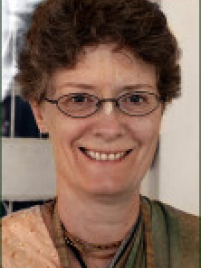ISKCON Leader Tackles Pastoral Abuse Issue
By Venkata Bhatta Dasa | Фев 14, 2010

Sita (not her real name) had only been a resident of her local ISKCON temple for a few months when she was called in to see her Temple President. A respected and senior devotee several years Sita’s elder, the President invited Sita in, shut the door, and immediately began to complain of a persistent neck ache. “I’ve just been so busy organizing this festival and painting the prasadam room,” he explained, taking Sita’s hand. “Maybe you could just give me a little shoulder rub?” Sita felt reluctant to say no to a request for service and risk offending a senior devotee, and so she agreed. In the next few weeks, the two grew closer and soon embarked on a romantic relationship. The President assured her that he would leave his wife for her once their children were a bit older, and promised Sita that if she remained discreet about their relationship, he would speak to her spiritual master – a close friend and god-brother of his – and recommend that she be awarded second initiation.
Krishna devotees might describe such a scenario – sadly, not uncommon in ISKCON – in a variety of ways: “disgusting,” “illicit,” “bogus,” “cheating,” “fall-down.” Few, however, would know to use the technical term for what happened to Sita: pastoral abuse.
Praharana Dasi, an ISKCON leader based in Toronto, Canada, would like to see that change. In January, she made a formal presentation before ISKCON’s North American leadership in Dallas, Texas, emphasizing the Society’s need to address pastoral abuse.
“It’s not just ‘an affair,’” she urged her attentive audience, “it’s abuse. Period.”
Praharana explained that the inherent power differentials between ecclesiastic leaders – those with “pastoral authority” to borrow Christian terminology – and their subordinates, means that such leaders must maintain appropriate boundaries. And when those boundaries are breached, especially through sexual contact, leaders have abused their positions. Not surprisingly, the victim is almost always a woman and the abuser, a man.
Drawing on a wealth of statistics, and analogizing from experiences in Christian communities, Praharana’s presentation walked ISKCON leaders through characteristics of pastoral abuse, warning signs to be aware of, and possible social and legal ramifications. She also presented a detailed set of guidelines designed to help leaders address pastoral abuse. The fifteen-page document, formally entitled Policy and Operational Guidelines regarding Protection of Children and Vulnerable Adults from Sexual Abuse and Harassment by ISKCON Clergy and Personnel and endorsed by the North American GBC, lays out reporting standards, governance principles, and procedures for discipline and review.
In what was perhaps the most poignant section of her talk, Praharana also discussed several case studies from within recent ISKCON history. She did not pull any punches, calling out the Hare Krishna movement’s track record in this regard as “abysmal” and “embarrassing,” and making a strong connection between pastoral abuse and the crisis of widespread child abuse that rocked ISKCON in the 1970s and 1980s.
Several factors in ISKCON – from its strongly hierarchal structure to its tendency to isolate members from secular resources to lingering misogynist views and the persistent lack of women in leadership positions – make it especially prone to pastoral abuse. These factors also foster an environment where such abuse is swept under the rug, and the few victims who do come forward are often penalized for speaking out.
Tragically, this was the case with Sita. Encouraged by a few friends whom she reluctantly confided in, she eventually came forward and reported what had transpired with her Temple President. Accused of causing his “fall-down,” she was ostracized from the community and eventually left the practice of Krishna consciousness altogether.
Devotees like Praharana know that merely giving a name to Sita’s ordeal will not change what happened to her. But they hope that it will be the first step in giving other devotees who find themselves in Sita’s position a chance for a better outcome.















